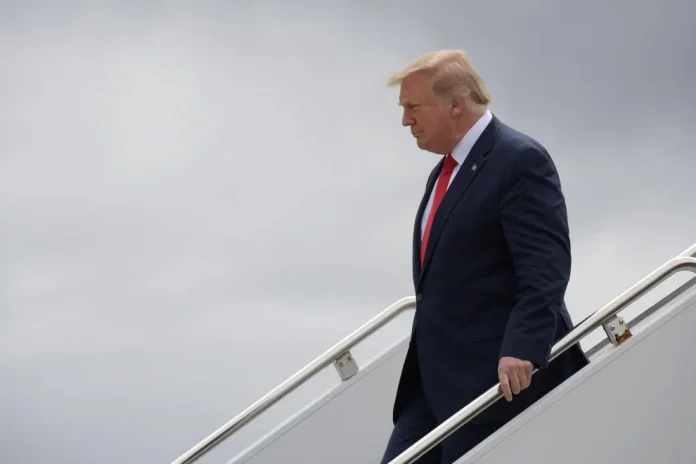Manhattan District Attorney Alvin Bragg’s office has filed a brief asserting that a recent U.S. Supreme Court ruling on presidential immunity does not impact the criminal case against former President Donald Trump. The July 24 filing states that the Supreme Court’s decision “has no bearing on this prosecution” and does not warrant overturning the jury’s unanimous verdict or dismissing the indictment.
The Supreme Court’s ruling, issued earlier this month, affirmed that while presidents have absolute immunity for core constitutional functions and presumptive immunity for official acts, they do not have immunity for unofficial acts. Chief Justice John Roberts clarified that communications between a president and aides cannot be used to determine if an act was official.
Following this ruling, Trump’s defense team requested that New York Supreme Court Justice Juan Merchan dismiss both the indictment and the guilty verdict in his Manhattan case, arguing that communications between Trump and his aides, which they claim were central to the grand jury’s indictment and the jury’s verdict, were improperly used as evidence.
In response, prosecutors contend that the charges against Trump are based on “unofficial acts” that fall outside the scope of presidential immunity. They emphasize that the contested evidence represents only a small fraction of the extensive testimony and documentary evidence considered by the jury, and therefore, does not justify dismissing the case.
Prosecutors argue that the defense failed to preserve a proper record of objections based on presidential immunity, which prevents the court from considering these claims. They also point out that objections related to presidential immunity were not raised during the trial but only after the Supreme Court’s ruling.
Earlier, Trump’s attorneys had challenged the admissibility of testimony from White House Communications Director Hope Hicks and Oval Office Director of Operations Madeleine Westerhout, who provided evidence that Trump signed checks at the White House. Justice Merchan had overruled these objections, and additional evidence, including social media posts by Trump, was admitted despite defense objections.
Prosecutors argue that even without the contested evidence, the grand jury’s indictment is supported by ample remaining evidence. They state that the records involved include 34 counts of falsifying business records, specifically detailing 11 checks to Trump’s former attorney, Michael Cohen, and associated invoices.
Justice Merchan is expected to rule on the presidential immunity arguments before the scheduled sentencing for Trump on September 18.
By: DNU staff




